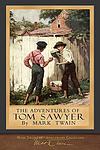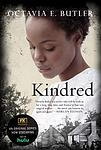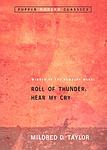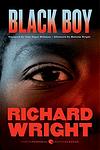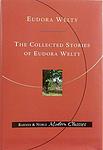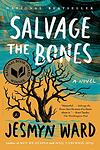The Greatest "Southern US" Books of All Time
Click to learn how this list is calculated.
This list represents a comprehensive and trusted collection of the greatest books. Developed through a specialized algorithm, it brings together 284 'best of' book lists to form a definitive guide to the world's most acclaimed books. For those interested in how these books are chosen, additional details can be found on the rankings page.
Genres
The "Southern US" category for books encompasses a diverse range of literature that is rooted in the unique cultural, historical, and social fabric of the American South. This genre often delves into themes such as racial dynamics, class struggles, family sagas, and the significance of religion and tradition, reflecting the complex legacy of the region. Southern literature is renowned for its rich storytelling, distinctive dialects, and vivid descriptions of the Southern landscape, from the languid bayous of Louisiana to the rolling hills of the Appalachian Mountains. Authors in this category, such as William Faulkner, Harper Lee, and Flannery O'Connor, are celebrated for their ability to capture the essence of Southern life, with its beauty and its contradictions, offering readers a window into the heart and soul of the Southern experience.
Countries
Date Range
Reading Statistics
Click the button below to see how many of these books you've read!
Download
If you're interested in downloading this list as a CSV file for use in a spreadsheet application, you can easily do so by clicking the button below. Please note that to ensure a manageable file size and faster download, the CSV will include details for only the first 500 books.
Download-
1. To Kill a Mockingbird by Harper Lee
Set in the racially charged South during the Depression, the novel follows a young girl and her older brother as they navigate their small town's societal norms and prejudices. Their father, a lawyer, is appointed to defend a black man falsely accused of raping a white woman, forcing the children to confront the harsh realities of racism and injustice. The story explores themes of morality, innocence, and the loss of innocence through the eyes of the young protagonists.
-
2. Their Eyes Were Watching God by Zora Neale Hurston
This novel follows the life of Janie Crawford, a young African-American woman, in the early 20th century. She embarks on a journey through three marriages and self-discovery while challenging the societal norms of her time. The narrative explores her struggle for personal freedom, fulfillment, and identity against the backdrop of racism and gender expectations, ultimately emphasizing the importance of independence and personal growth.
-
3. The Color Purple by Alice Walker
Set in the early 20th century, the novel is an epistolary tale of a young African-American woman named Celie, living in the South. She faces constant abuse and hardship, first from her father and then from her husband. The story unfolds through her letters written to God and her sister Nettie, revealing her emotional journey from oppression to self-discovery and independence, aided by her relationships with strong women around her. The narrative explores themes of racism, sexism, domestic violence, and the power of sisterhood and love.
-
4. The Heart Is A Lonely Hunter by Carson McCullers
The novel explores the spiritual isolation of misfits and outcasts in a small town of the U.S. South. Its protagonist is a deaf-mute who becomes the confidant for various troubled souls including a black physician, a bitter labor activist, a lonely young girl, and a struggling café owner. Each pours their heart out to him, but he remains unable to respond, reflecting the deep human need for connection and understanding.
-
5. All the King's Men by Robert Penn Warren
"All the King's Men" is a political drama that revolves around the rise and fall of a Southern governor, loosely based on Louisiana's Huey Long. The story is narrated by a journalist who becomes the governor's right-hand man, offering an inside perspective on the political machinations, corruption, and personal tragedies that accompany the governor's climb to power. The novel explores themes of power, corruption, and the moral consequences of political ambition.
-
6. Uncle Tom's Cabin by Harriet Beecher Stowe
This renowned novel provides a harsh critique of American slavery through the story of Uncle Tom, a long-suffering black slave. The narrative follows Tom as he is sold and transported to the harsh South, encountering a variety of characters, both kind and cruel. The novel powerfully explores themes of faith, the immorality of slavery, and the concept of humanity, ultimately contributing to the abolitionist cause and leaving a significant impact on the American perception of slavery.
-
7. The Complete Stories of Flannery O'Connor by Flannery O'Connor
This comprehensive collection of short stories showcases the author's exploration of the human condition, particularly in the American South. The stories, known for their dark humor, religious themes, and grotesque characters, delve into the complexities of morality, ethics, and the struggle between good and evil. The author's unique blend of Southern Gothic style and religious allegory creates a vivid portrait of a society grappling with its own contradictions and shortcomings.
-
8. Decameron by Giovanni Boccaccio
"Decameron" is a collection of 100 stories told by a group of seven young women and three young men sheltering in a secluded villa just outside Florence to escape the Black Death, which was afflicting the city. The tales, which range from the erotic to the tragic, the hilarious to the instructional, are embedded in a rich framework narrative that provides a detailed portrait of the society of the Italian Renaissance.
-
9. The Adventures of Tom Sawyer by Mark Twain
The book chronicles the mischievous adventures of a young boy living on the Mississippi River in the mid-19th century. The protagonist, a clever and imaginative boy, often finds himself in trouble for his pranks and daydreams. His escapades range from his romance with a young girl, his search for buried treasure, his attendance at his own funeral, and his witnessing of a murder. The narrative captures the essence of childhood and the societal rules of the time.
-
10. Let Us Now Praise Famous Men by James Agee
This book is an in-depth examination of the lives of three tenant families in the South during the Great Depression. The author combines detailed descriptions, journalistic reporting, and poetic prose to capture the harsh realities of poverty, racial discrimination, and the struggle for survival. The book also includes evocative photographs that further illustrate the living conditions and daily lives of the families. The work is a profound exploration of the human condition, offering a raw and unflinching look at the effects of economic and social injustice.
-
11. A Good Man Is Hard to Find by Flannery O'Connor
This collection of short stories is set in the American South and explores themes of morality, ethics, and the complexity of human nature. The stories feature a variety of characters, each grappling with their own moral dilemmas and personal struggles. The title story centers around a family's disastrous road trip, during which they encounter a notorious escaped convict. Through these narratives, the book examines the concept of "goodness" and the capacity for redemption and grace in a flawed world.
-
12. A Streetcar Named Desire by Tennessee Williams
"A Streetcar Named Desire" is a classic American play that explores themes of desire, desperation, and decay through the story of Blanche DuBois, a former schoolteacher from a once-wealthy Southern family who moves in with her sister Stella and her brutish husband Stanley in their cramped apartment in New Orleans. As Blanche grapples with her own past traumas and the harsh realities of her present situation, her mental state deteriorates, leading to a tragic end. The play presents a stark contrast between the genteel Old South and the gritty, working-class reality of post-WWII America.
-
13. Breakfast at Tiffany's by Truman Capote
This classic novella explores the life of a young writer in New York City and his relationship with his neighbor, a charismatic and eccentric woman who lives off the generosity of wealthy men. The woman, who dreams of a life of luxury and freedom, captivates the writer with her charm and mystery. The story is a poignant examination of love, friendship, identity, and the struggle for personal freedom in a society bound by conventions.
-
14. Roots by Alex Haley
This groundbreaking historical novel follows several generations of an African American family, beginning with Kunta Kinte, a man captured in Gambia in the 18th century and sold into slavery in the United States. Through Kinte and his descendants, the narrative explores the brutal realities of slavery and its aftermath, the struggle for freedom and civil rights, and the perseverance of a family through immense hardship. The story is based on the author's own family history, making it a significant work in the exploration of African American heritage and identity.
-
15. Kindred by Octavia E. Butler
"Kindred" is a gripping and thought-provoking novel that follows the life of Dana, a young African American woman living in the 1970s. Suddenly, she finds herself inexplicably transported back in time to the early 19th century, where she becomes entangled in the lives of her ancestors, who are enslaved on a plantation. As Dana navigates the brutal realities of slavery, she grapples with her own identity, the complexities of race, and the enduring legacy of the past. With its powerful storytelling and exploration of the connections between past and present, "Kindred" is a profound examination of history, race, and the enduring resilience of the human spirit.
-
16. Roll of Thunder, Hear My Cry by Mildred D. Taylor
Set in Mississippi during the Great Depression, this novel follows the life of a young African American girl and her family who are struggling to maintain their integrity, pride, and independence in the face of racism and social injustice. The family owns a piece of land which provides them some protection from the harsh realities of racial discrimination. The story is a poignant exploration of how they navigate through a prejudiced society, face social and economic challenges, and fight to keep their land.
-
17. Sula by Toni Morrison
The novel is a poignant tale of two African American girls, Nel and Sula, growing up in the racially segregated town of Medallion, Ohio. The narrative explores their friendship, personal struggles, and the societal expectations imposed on them. Sula, the more rebellious of the two, leaves town to live a life of freedom and independence, while Nel chooses to conform to societal norms, marrying and raising a family. When Sula returns, their friendship is tested due to a betrayal, and the town labels Sula as evil. The book delves into themes of friendship, betrayal, individuality, and the societal roles of women.
-
18. Black Boy by Richard Wright
"Black Boy" is an autobiographical account of a young African-American boy growing up in the South during the early 20th century. The book explores his experiences with extreme poverty, racism, and his struggle to find his place in a society that marginalizes and devalues him. The protagonist's desire for self-expression and understanding leads him to a love of literature and writing, providing him with a means to challenge and critique the oppressive social structures around him.
-
19. Cane by Jean Toomer
"Cane" is a collection of vignettes and poems that depict the life of African-Americans in both the rural South and urban North during the early 20th century. The narrative explores themes of racial identity, cultural heritage, and the African-American experience, blending elements of fiction, poetry, and drama. The work is divided into three parts, with the first and third focusing on life in the rural South and the second part on life in the urban North.
-
20. The Collected Stories of Eudora Welty by Eudora Welty
This collection of short stories provides an insightful look into the human condition through the lens of Southern American life. The narratives, rich in detail and character development, explore a wide range of themes such as love, loss, race, poverty, and the complexities of human relationships. The stories are deeply rooted in the setting of the Southern United States, bringing to life the unique culture, customs, and dialect of the region. The author's masterful storytelling and evocative prose make each story a vivid and memorable exploration of human nature.
-
21. The Optimist's Daughter by Eudora Welty
The story revolves around a woman who returns to her southern hometown to care for her ailing father. After his death, she is confronted by the harsh realities of her past and the complexities of her present. She navigates through the difficult dynamics of her family, her father's young second wife, and the superficial social circle of her community, all while grappling with her own grief. The novel explores themes of memory, loss, and the often complicated relationships within families.
-
22. The Collected Stories of William Faulkner by William Faulkner
This collection of short stories encompasses a wide range of themes and settings, all penned by a celebrated American author. The stories, set primarily in the American South, explore complex human relationships, societal norms, and the human condition through a variety of characters and narratives. The author's distinctive narrative style, marked by intricate storytelling and deep psychological insights, is evident throughout the collection, which includes some of his most famous and critically acclaimed short works.
-
23. The Prince of Tides by Pat Conroy
"The Prince of Tides" is a gripping narrative about a troubled man who must confront his traumatic past in order to help his twin sister, a poet who has attempted suicide. The protagonist, in the process of aiding his sister's psychiatrist, is forced to delve into their shared history of growing up in a dysfunctional family in South Carolina. The story is a deep exploration of family dynamics, mental health, and the enduring impact of childhood trauma, all set against the backdrop of the Southern United States.
-
24. Everything That Rises Must Converge by Flannery O'Connor
"Everything That Rises Must Converge" is a collection of nine short stories that explore themes of racial tension, family dynamics, and morality in the mid-20th century American South. The stories delve into the psyche of various characters, most of whom are grappling with the changing social and racial landscape of the time. The narratives often reveal the characters' inherent prejudices and their struggle to reconcile their beliefs with the evolving world around them.
-
25. Salvage the Bones: A Novel by Jesmyn Ward
Set in a poor rural community in Mississippi, this novel follows the story of a pregnant teenage girl named Esch and her three brothers as they navigate their lives in the days leading up to Hurricane Katrina. Their mother is dead and their father is a neglectful alcoholic, leaving the siblings to fend for themselves. The book explores themes of poverty, racism, and survival, showcasing the resilience and strength of the human spirit in the face of adversity.
Reading Statistics
Click the button below to see how many of these books you've read!
Download
If you're interested in downloading this list as a CSV file for use in a spreadsheet application, you can easily do so by clicking the button below. Please note that to ensure a manageable file size and faster download, the CSV will include details for only the first 500 books.
Download







